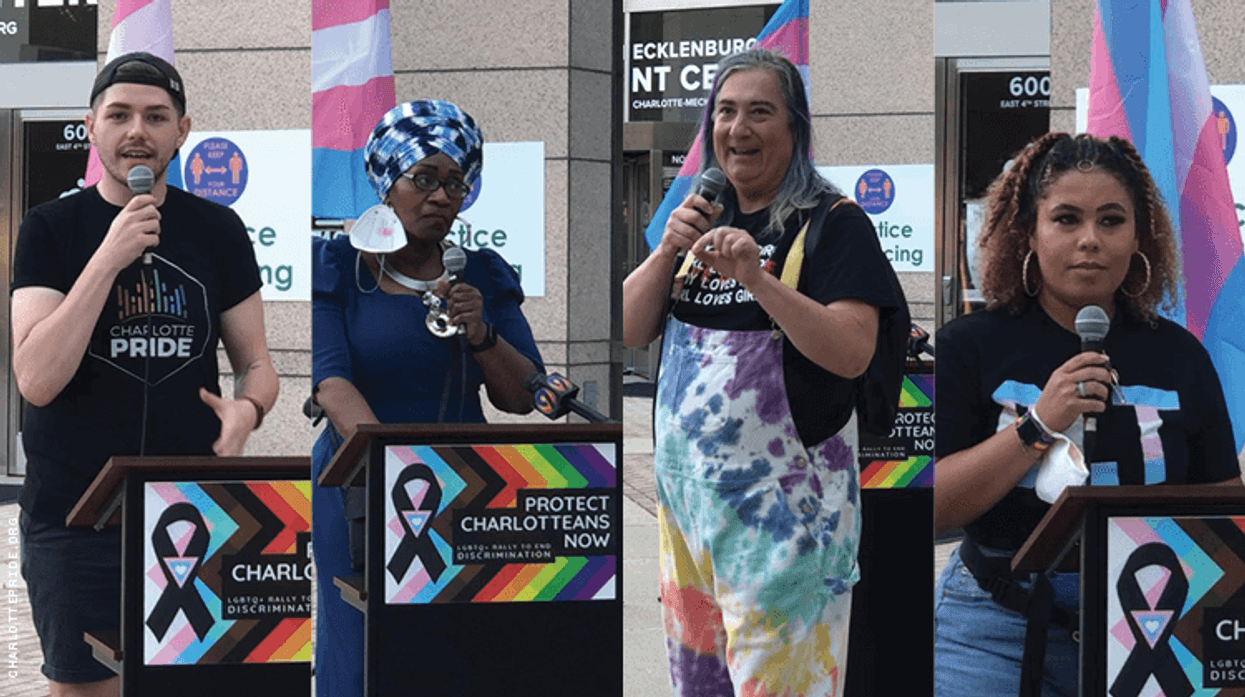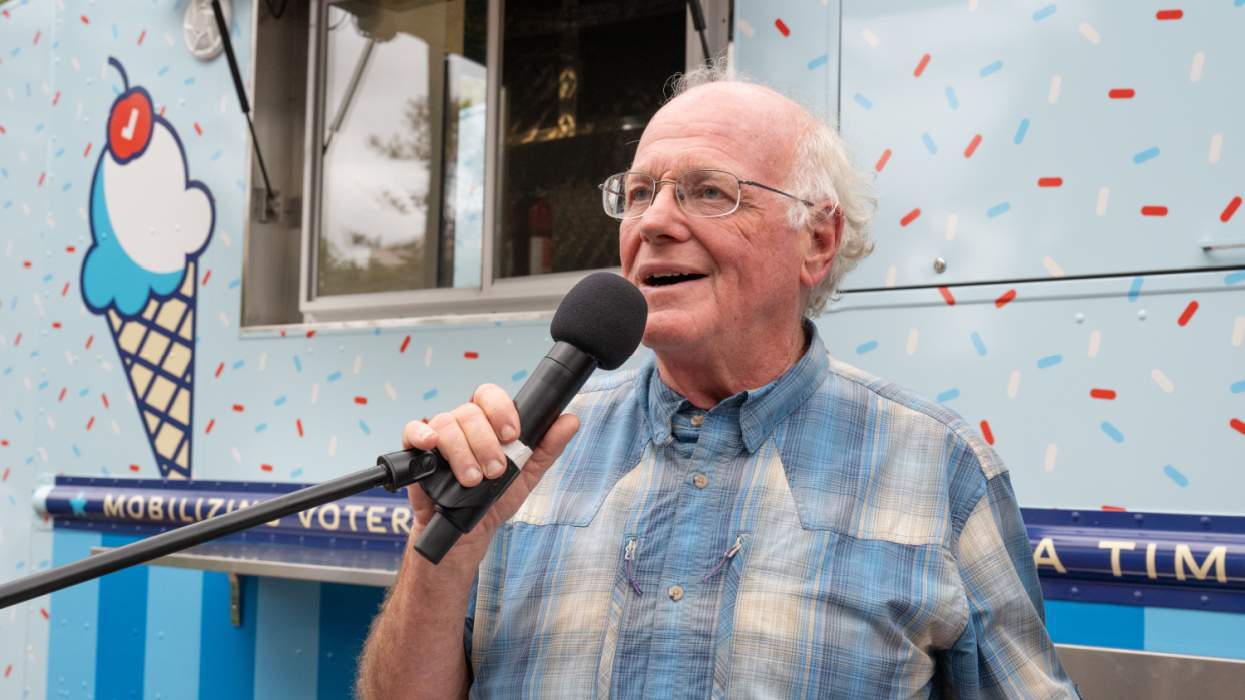Five years after Charlotte, N.C.'s LGBTQ+ civil rights ordinance led the state to pass its notorious "bathroom bill" and invalidate the ordinance, Charlotte has enacted an inclusive law again.
The new ordinance, adopted by the City Council Monday night, is more comprehensive than the earlier one, which addressed only public accommodations. It bans discrimination based on sexual orientation, gender identity and expression, natural hairstyles, and several other characteristics in public accommodations, employment, and passenger vehicles for hire, NBC News reports.
However, it does not address restroom access, as North Carolina law reserves power over that to state legislators. The original Charlotte ordinance was controversial because it would have allowed transgender people to use the public restrooms consistent with their gender identity, and that led opponents to demonize trans people as predators or contend that, at least, people could pretend to be trans to gain access to women's restrooms for predatory purposes.
So the state in 2016 called a special legislative session to pass the infamous House Bill 2, which barred trans people from using the restrooms and other single-sex facilities comporting with their gender identity when in government-managed buildings, such as city halls, municipally operated sports arenas, public schools, and state colleges and universities. It also prevented cities and counties from enacting or enforcing any nondiscrimination law that went beyond state law -- for instance, in banning anti-LGBTQ+ discrimination.
HB 2 resulted in much public outcry and boycotts of the state by businesses and entertainers. Most of its provisions were repealed by House Bill 142, OK'd by state legislators in 2017 under a new governor, Democrat Roy Cooper, who succeeded Republican Pat McCrory. But it left the limitations on municipal nondiscrimination laws in place until last year, and it continues to keep restroom access under state control. The state has not enacted any restroom restrictions so far.
"I really do believe this is such a right thing to do," Charlotte Mayor Vi Lyles said shortly before the City Council's unanimous vote in favor of the ordinance, The Charlotte Observer reports.
Activists gathered outside the Charlotte Government Center prior to the council meeting to call for passage of the law. "This is about freedom," said Jenny Gunn, a trans woman who said she's experienced job discrimination because of her gender identity, the Observer notes. After the vote, she said, "This is a happy ending."
The inclusion of natural hairstyles in the ordinance was praised as well, as activists say African-Americans often are told that natural hair is unprofessional, and therefore it becomes cause for discrimination.
The public accommodations provision of the ordinance will go into effect October 1 and the employment provision January 1. Small employers (those with 14 or fewer workers), faith-based groups, and members-only clubs are exempted.
The city is still working on how to enforce the law, with Lyles referring this issue to a committee. Some activists say fines should be included, which they are not at this point.
Charlotte, the state's largest city, is the 10th to pass an LGBTQ-inclusive nondiscrimination ordinance since the state ban lifted. Mecklenburg County, where Charlotte is located, has adopted a similar law but without an enforcement mechanism, so county commissioners are expected to revisit the issue soon.
The Campaign for Southern Equality, Equality NC, and Charlotte-area LGBTQ+ groups praised the council's move and said it should be built upon. "Small towns, mid-sized cities, counties, and now the largest city in North Carolina have all taken steps to protect LGBTQ people and illustrate that NC is ready for these protections statewide," said a statement from Kendra R. Johnson, executive director of Equality NC.















Charlie Kirk DID say stoning gay people was the 'perfect law' — and these other heinous quotes
These are some of his worst comments about LGBTQ+ people made by Charlie Kirk.